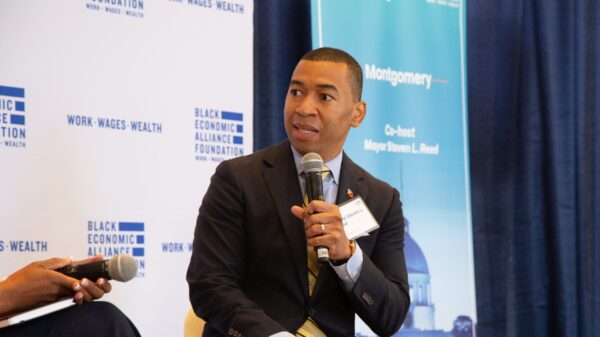Larry Lee’s opinion piece of May 22 is nothing more than second-hand cherry picking of misleading data and the willful distortion of the facts. Alabamians deserve the truth about the sincere efforts in Montgomery to improve the lives of Alabama families and students based on proven and well-documented successes in Florida.
Policymakers in Alabama and states around the country are emulating transformational policies adopted in Florida over the past 20 years to help students succeed. There is only one question to answer: Are Florida students better off today and more likely to graduate ready to succeed in college and careers than they were in the past?
By any measurement, the answer is “yes.”
Let’s start with the most fundamental metric: whether students are reading at grade level before they enter fourth grade. A report by the Annie E. Casey Foundation shows that children who enter fourth grade unprepared to read at that level face much higher odds of dropping out of school in the future, forever damaging their chances to pursue a fulfilling career.
In 1999, when Florida placed a command focus on school accountability, early literacy and educational opportunity, nearly half of the state’s third graders were reading severely below grade level. Today, the state is ranked fifth in the nation in 4th grade reading and overall the state’s 4th graders have improved more than two grade levels since 1999.
The same is true in math. Twenty years ago, half of Florida’s 4th graders were performing below the national average. Today, Florida’s 4th graders rank seventh in the nation in math achievement.
Performing well in lower grades matters little if students don’t graduate from high school. Only half of Florida’s students graduated on time two decades ago. Since then the statewide graduation rate has increased more than 30 percentage points with even bigger gains among Hispanic and African-American students. Put simply, Florida’s student-centered policies are improving schools, closing the equity gap and leading to rising academic achievement.
There is no secret to this success and the ingredients are there for all to share. Among them: Ensure all families, regardless of income, have access to a variety of educational options to find the right fit for their child. Focus on early literacy by supporting teachers with additional resources and a focus on students falling behind as early as kindergarten. Hold schools accountable with an easy-to-understand grade.
Is there room for improvement in Florida? Of course. But unlike many other states, Florida’s leaders and educators have embraced a culture of change and an unwillingness to settle for mediocrity. In fact, Florida’s policymakers just this session expanded school choice for low-income families, passed one of the most extensive package of workforce readiness reforms in the country and recognized the hard work of educators with a $285 million increase in teacher bonuses.
I encourage everyone in Alabama to ignore the predictable rhetoric of the status quo and boldly challenge the old methods that haven’t successfully prepared students for success. There will be naysayers who spread fear and confusion along the way. But Alabama’s educators, families and students deserve transformation within a broken system that has been stagnant for far too long.
Patricia Levesque is the CEO of the Foundation for Excellence in Education (ExcelinEd).





















































